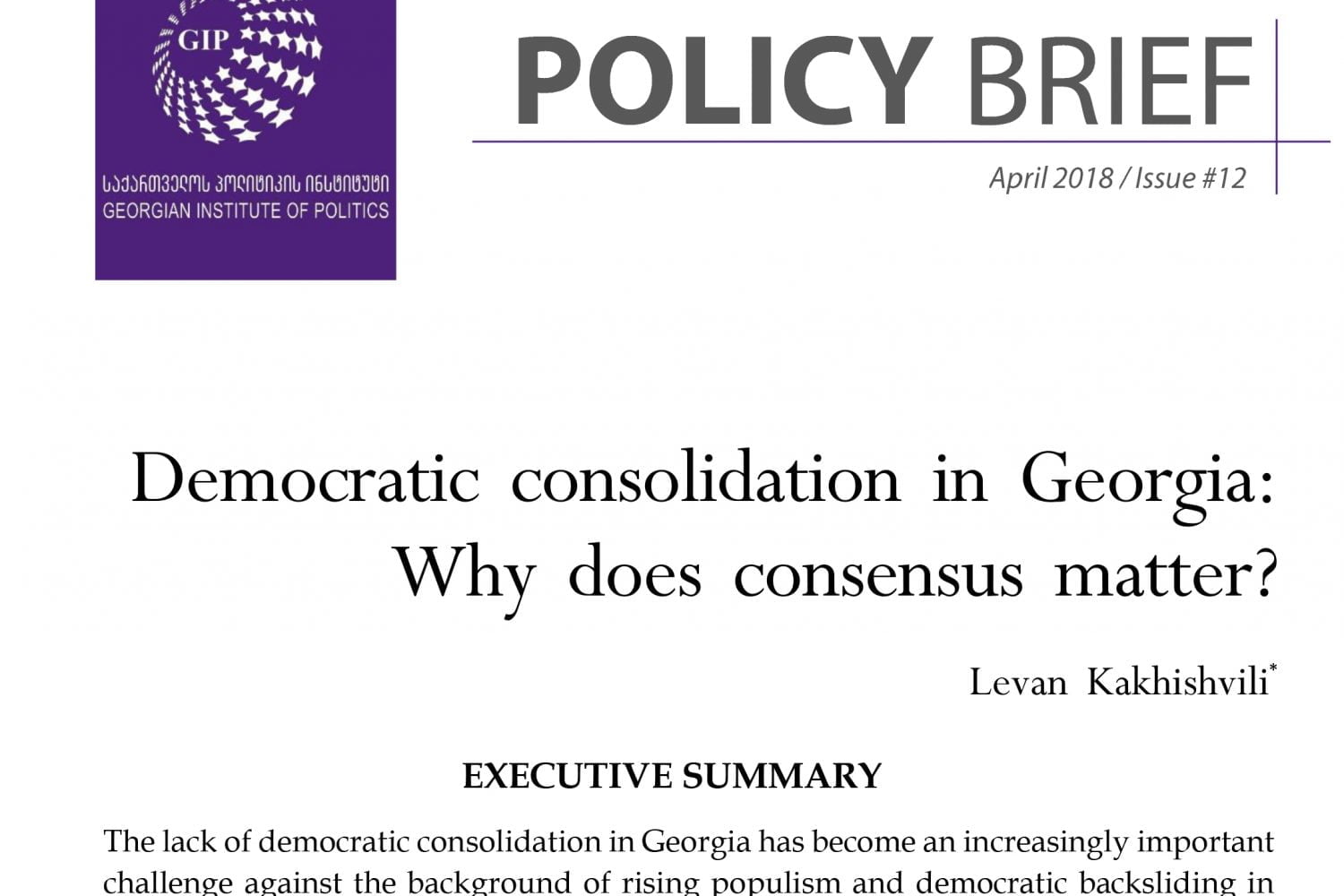2018-04-05 23:10:05
The lack of democratic consolidation in Georgia has become an increasingly important challenge against the background of rising populism and democratic backsliding in Europe and North America. It is widely believed that the European Union’s (EU) policy of conditionality has been the primary driver of Georgia’s democratization and advancing its reform agenda. It is vital, however, that the uncertainty in the world today does not harm the process of democratic consolidation in the country, especially as it appears that the EU has already given Georgia the most significant short-term carrots. Consensus among the political elite and Georgian society on the significance of liberal democratic values and democracy for the development of the country is a major factor in the continuation of domestic support for democratic reforms. Such consensus seems to be lacking in Georgia, however, and this dire situation needs to be urgently addressed by key stakeholders, such as political parties, civil society, the EU, etc. Consequently, the present paper addressing this problem, argues that the country’s main political parties need to strengthen their commitment and emphasis on democratic values when speaking to the public and civil society should help political parties achieve this goal, as well as use their own channels to contribute to creating a consensus on democracy. The EU can also assist the process by increasing support for value change in the socio-political life of Georgia.




